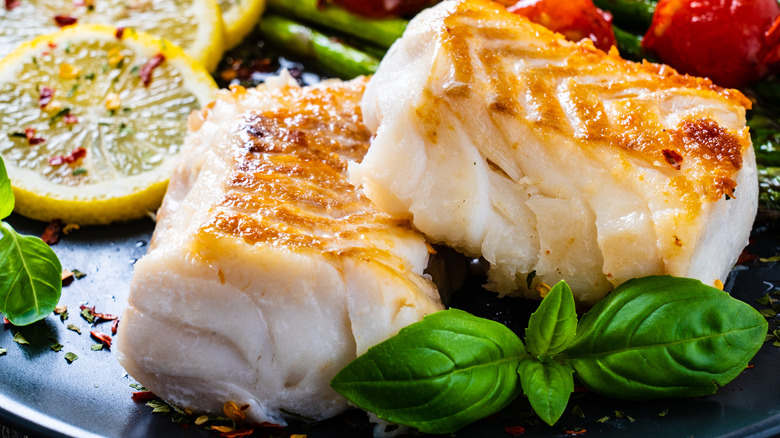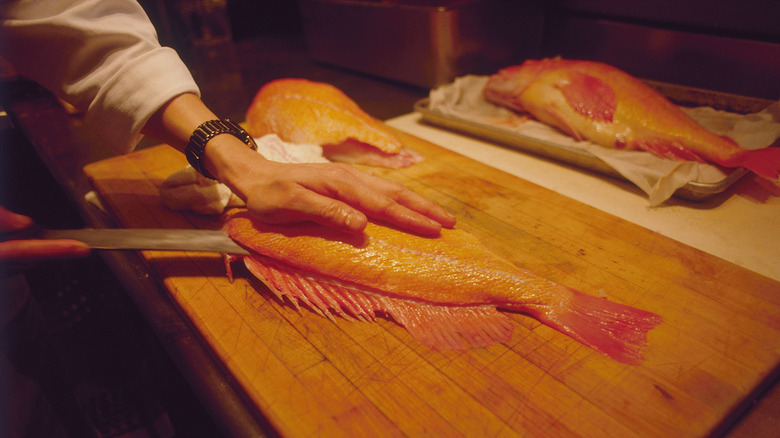Here's Why People Eat Fish On Fridays
It's the Lenten season, have you gotten your Friday fish fry yet? If you're Catholic, you were probably raised eating fish on the Fridays between Ash Wednesday and Easter Sunday. In Upstate New York, across the Rust Belt cities of Buffalo, Rochester, and Syracuse, the Lenten Friday fish fry is ubiquitous. Even if you're not Catholic, you've most likely stopped by your local volunteer fire department or American Legion fish fry for breaded and fried fish or shrimp, fries, and a side of cole slaw and local gossip.
Fried fish, haddock especially, is popular in the Upstate New York region because of the large number of Catholic immigrant populations that settled there, like Italians, Irish, and Polish. They brought their faith with them, which means they don't eat meat on Fridays during Lent, the 40 days of sacrifice between Ash Wednesday and Easter Sunday. They worked in the factories that used to dot the landscape, and a fish dinner was cheap and easy to bring home after a day at the factory. The tradition is still alive today, with most smaller towns and villages from Buffalo to Albany setting up seasonal meals at their local churches, Legions, and VFWs (via New York Upstate).
But it still doesn't explain why Catholics eat fish on Lenten Fridays, and for that, we need to take a look at papal history.
Fish has always held a special place in Catholicism
By the Medieval Era, Fridays as well as Wednesdays, Saturdays, and the seasons of Advent (the four Sundays leading up to Christmas) and Lent were all considered meatless days for Catholics. According to U.S. Catholic, the point isn't to eat fish but to abstain from meat. Fridays are seen as especially symbolic because it was the day Jesus died. Not eating meat on Fridays was a way to abstain from shedding blood on the day Jesus died, and a way to honor his death.
According to NPR, the numerous fasting days increased the demand for fish which fueled the growth of the fishing industry, which almost didn't make it out of the 1500s intact. King Henry VIII broke ties with the Catholic church in order to divorce Catherine of Aragon and marry Anne Boleyn, establishing the Church of England in the process, and eliminating fasting days. His son, King Edward VI, reinstated fasting days to save the fishermen.
Per The Fatima Center, in the 1960s the Second Vatican Council and Pope Paul VI relaxed the rules for fasting and abstaining from meat, and while Catholics aren't required to abstain from meat on Fridays anymore, the rule still applies to the 40 days of Lent.

